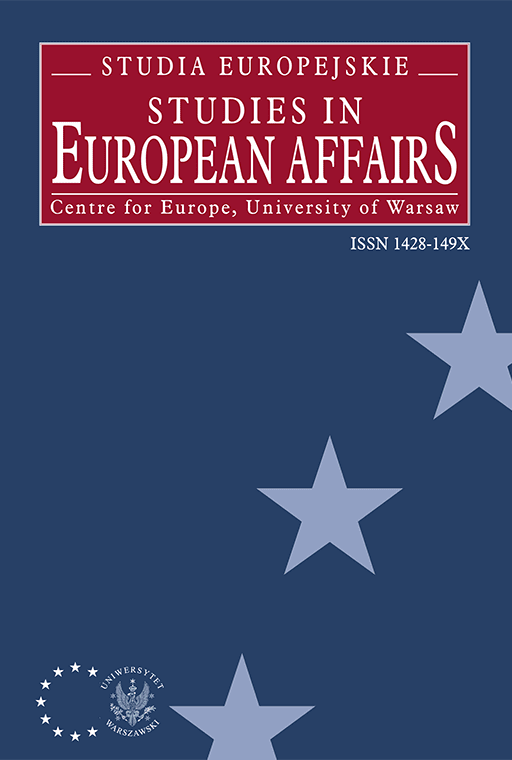
ISSUE: 4/2009
- Volume 52
- Number 4
- 2009
Subscribe NEWSLETTER
Studia Europejskie –
Studies in European Affairs
ISSN: 1428-149X
e-ISSN: 2719-3780
License
Articles published in the journal are under a Creative Commons Attribution – Non Commercial – No Derivatives 4.0 International License
Deficyt demokracji w Unii Europejskiej? Instytucje Unii Europejskiej i poczucie wpływu na jej funkcjonowanie w świetle badań opinii publicznej
“Democracy deficit” in the European Union? Institutions of the European Union and feeling of an influence had on the EU’s working in the light of the public opinion polls
Abstract
The problem of the so-called democracy deficit in the European Union (EU) is one of the most interesting and complex problems as well as one of the most important challenges the EU faces at the beginning of the 21st Century. In the two previous articles on this subject (“Studia Europejskie”, No. 1/2007 and 2/2007) the Author addressed the question of certain theoretical aspects of democracy deficit in the EU and the EU’s institutional system operation in which democracy deficit reveals. The article deals with the question of the public opinion in the EU member states about democracy deficit. The Author presents (on the basis of the Eurobarometer’s data) and analyses research findings about such questions as general opinion on the membership in the EU in a given country or views on the problem of costs and benefits deriving from membership in the EU. In the second part the Author presents results of research on such questions as a degree to which people in member states trust the EU institutions and – for the sake of comparison – their domestic ones or whether people think that the EU imposes its views upon their country, whether they understand how the EU operates or how transparent it is.
Language: Polish
Pages: 59-78
How to Cite:
Harvard
Kubin, T. (2009) "Deficyt demokracji w Unii Europejskiej? Instytucje Unii Europejskiej i poczucie wpływu na jej funkcjonowanie w świetle badań opinii publicznej". Studia Europejskie – Studies in European Affairs, 4/2009, pp. 59-78.